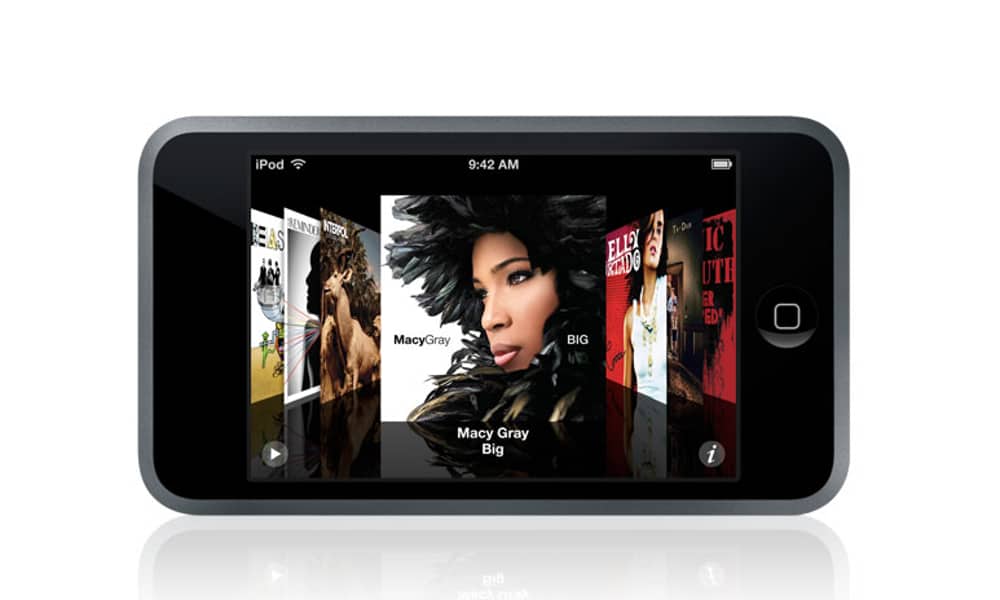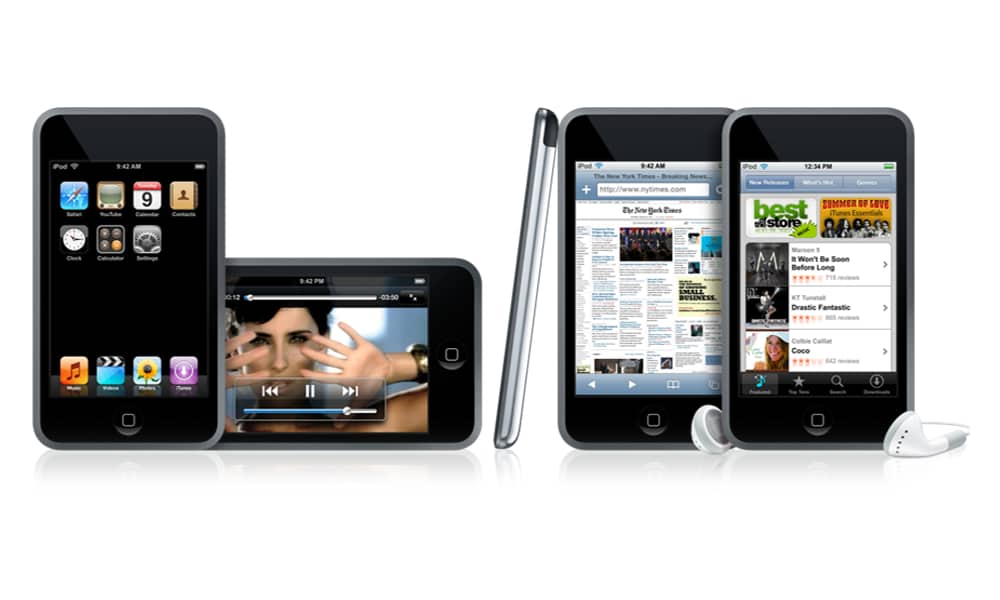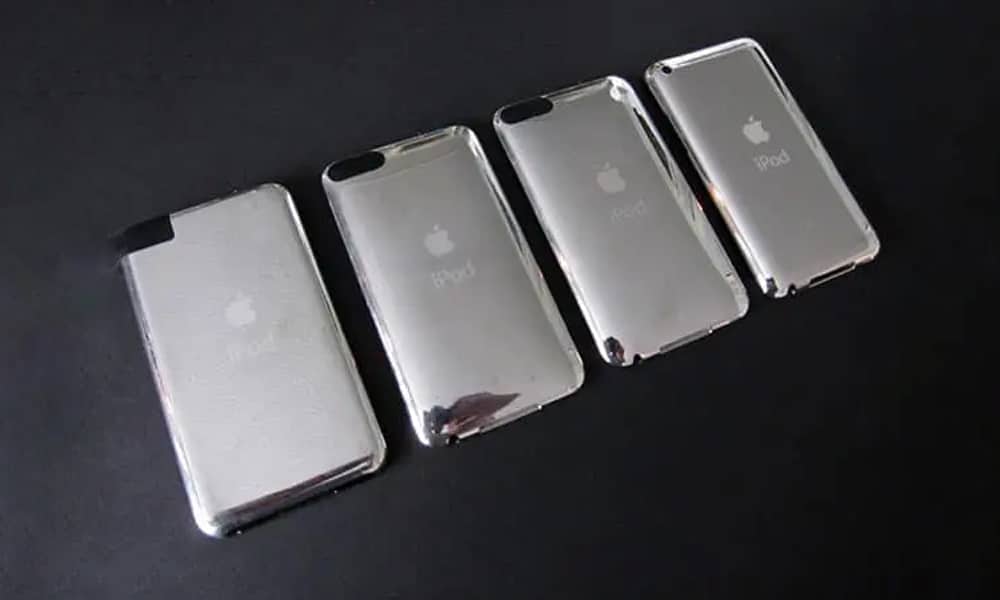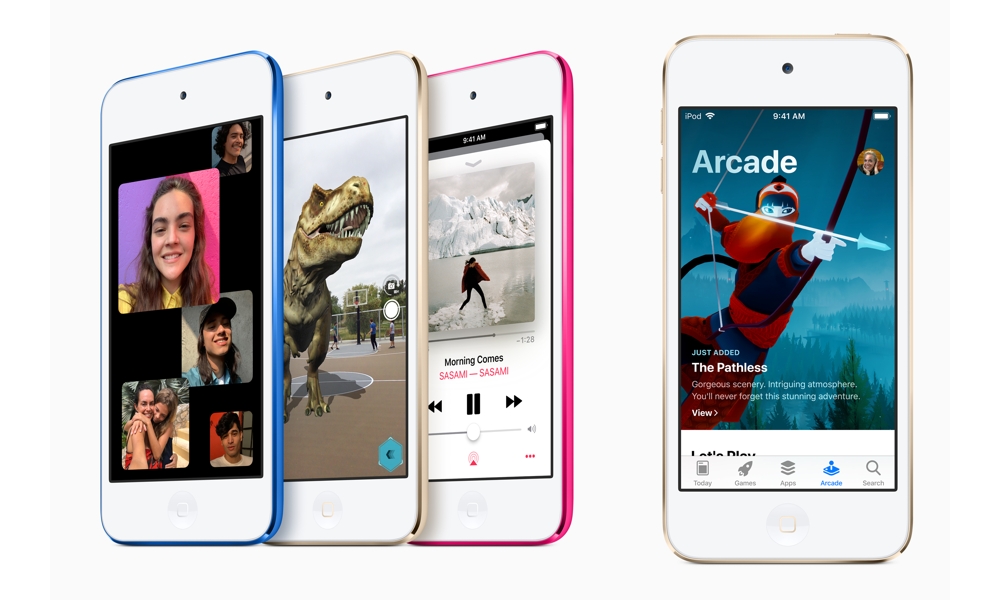Apple Says Goodbye to the iPod Touch | Quietly Kills off the Legacy Product
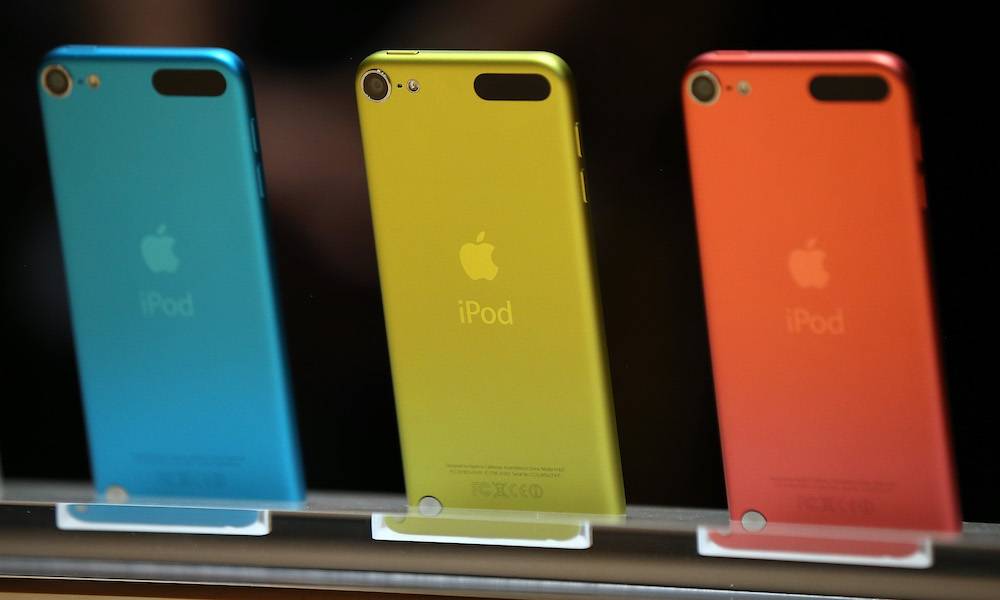 Credit: The Next Web
Credit: The Next Web
Toggle Dark Mode
The iPod touch will soon be a thing of the past, as Apple obliquely announced its cancellation today with a note that the portable music player will only be available “while supplies last.”
In a rather unusual newsroom announcement titled The music lives on, Apple focused on celebrating the introduction of the iPod family over 20 years ago, adding that “the spirit of iPod lives on” in all of its other devices.
Notably, nowhere in the news release does Apple actually say that the iPod touch has been discontinued. In fact, it barely mentioned the iPod touch at all except to say where customers can purchase one of the last remaining iPod touches.
Today, the spirit of iPod lives on. We’ve integrated an incredible music experience across all of our products, from the iPhone to the Apple Watch to HomePod mini, and across Mac, iPad, and Apple TV. And Apple Music delivers industry-leading sound quality with support for spatial audio — there’s no better way to enjoy, discover, and experience music.Greg Joswiak, Apple’s Senior VP of Worldwide Marketing
It’s perhaps one of the most indirect ways that Apple has ever announced the retirement of a product, but it’s clear Apple wants us to celebrate the iPod era rather than mourn it.
Music has always been part of our core at Apple, and bringing it to hundreds of millions of users in the way iPod did impacted more than just the music industry — it also redefined how music is discovered, listened to, and shared. Greg Joswiak, Apple’s Senior VP of Worldwide Marketing
When Apple killed off the iPod nano and iPod shuffle nearly five years ago, it didn’t offer a press release, but it was pretty candid in its media statement that it was discontinuing both products. At the time, Apple said this to “simplify” the iPod lineup with only two models.
Today, we are simplifying our iPod lineup with two models of iPod Touch, now with double the capacity, starting at just $199, and we are discontinuing the iPod shuffle and iPod nano.2017 statement from Apple
Nevertheless, it’s safe to say that the writing has been on the wall for a long time. Despite sketchy rumors of an eighth-generation model in the works, the last member of the iPod family has been living on borrowed time for years.
The iPod touch made its debut in 2007, only a few weeks after the original iPhone arrived. The intent was quite clear: this was an iPhone-like device to get folks into the “iOS” ecosystem who otherwise couldn’t have or didn’t want an iPhone.
That original iPod touch helped to introduce many more people to “iOS” (although it was called “iPod touch Software” back then), particularly since the first iPhone was only available on AT&T in the U.S. It whetted a lot of people’s appetites for the iPhone back then.
In the years that followed, Apple released three more generations of iPod touch, virtually in lockstep with each new iPhone model.
Of course, back then, Apple was still very much in the iPod business. New iPhone models were announced regularly each year in June, and September was reserved for Apple’s “iPod events.”
For instance, the iPhone 3G went on sale in June and July of 2008, while the second-generation iPod touch arrived in September at its “Let’s Rock” event alongside the fourth-generation iPod nano, and new colors and capacities for the second-generation iPod shuffle.
This was repeated in 2009 with the iPhone 3GS in the summer, and the third-generation iPod touch, fifth-generation iPod nano, and third-generation iPod shuffle in the fall. Then again, in 2010, a iPhone 4 release in June was followed by the fourth-generation iPod touch, sixth-generation iPod nano, and fourth-generation iPod shuffle in September.
However, in 2011 things changed, signaling the beginning of the end. Apple moved its iPhone event to the fall, with the iPhone 4S released at an early October event called Let’s Talk iPhone. It was clear Apple’s priorities had shifted.
That year, Apple’s iPod family took a back seat to the iPhone. No genuinely new iPod models were released; instead, the fourth-generation iPod touch got a white version and iOS 5.0, and Apple touted the iPod nano 1.2 firmware to improve the sixth-generation model.
A year later was the last time Apple’s iPod family would ever get any meaningful stage time. While Apple’s iPhone 5 headlined the event with its LTE capabilities, thinner design, and larger four-inch screen, Apple also unveiled a fifth-generation iPod touch with a very similar design and the seventh-generation iPod nano, which looked eerily like an iPhone mini (although it didn’t run iOS).
Following that, the iPod seemed to mostly disappear from Apple’s consciousness. Apple would never release another traditional iPod, discontinuing the long-lived iPod classic in 2014, followed by the final death of the iPod nano and iPod shuffle in 2017.
However, the iPod touch concept lived on a bit longer, with two subsequent updates. A sixth-generation model arrived in July 2015, two weeks after Apple Music debuted, making the reason for that update pretty obvious.
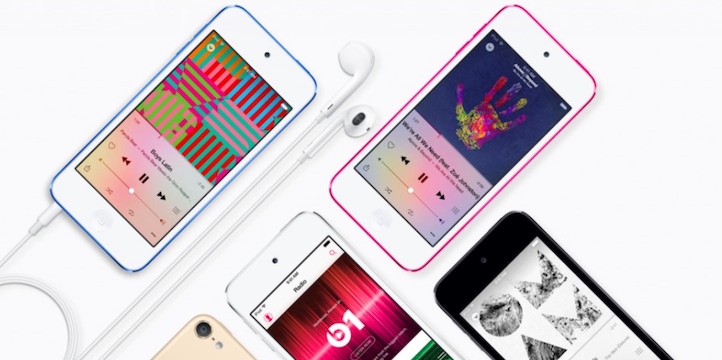
Then, another four years later, Apple released what is now the final iPod touch. The seventh-generation model was a very minor refresh of what came in 2015, adding the latest A10 CPU to make it a more capable gaming device. However, like its predecessor, it’s probably not a coincidence that it debuted the same year as Apple Arcade.
Since its inception, the iPod touch has always been a way to get people into the Apple ecosystem who wouldn’t otherwise buy an iPhone. In the early days, it was about the world of iOS and the App Store, while the more recent models were intended to provide affordable access to services like Apple Music, Apple Arcade, and Apple TV+.
However, the world of mobile technology has dramatically changed over the past decade. In the early days of smartphones, it wasn’t uncommon for people to still prefer “feature phones” due to the higher cost of smartphone hardware and the more expensive data plans that came with them. Today, smartphones are ubiquitous, and while not everyone is toting an iPhone, it’s unlikely many Android users are buying an iPod touch to use on the side.
Further, services like Apple Music are available on Android, Apple’s entry-level iPad is both more affordable and much more appealing and useful for kids, and the iPhone SE provides an affordable option for anybody who wants a pocket-sized iOS device with the latest specs and a larger screen.
It’s a sad end for the last member of what was once Apple’s most iconic product family, but the truth is that there’s no longer much of a place for the iPod touch in today’s world.


